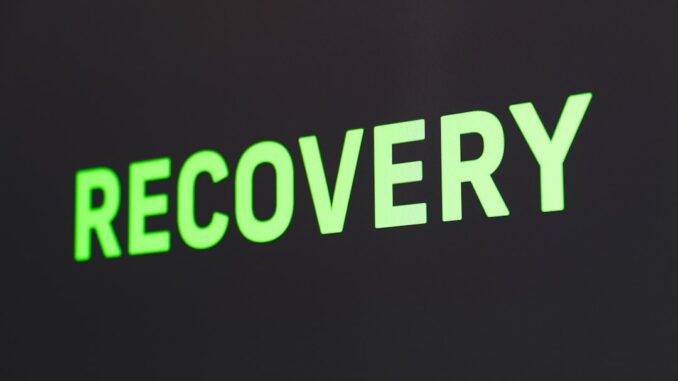
Summary
This article provides actionable steps for recovering substance abuse addicts. It emphasizes the importance of professional help, support networks, and healthy coping mechanisms. The guide also encourages self-care and personal growth throughout the recovery process.
** Main Story**
Breaking Free: Your Guide to Addiction Recovery
The road to recovery from substance abuse can feel like climbing a mountain, right? It’s challenging, no doubt, but with the right tools and mindset, it’s absolutely within reach. Let’s walk through some practical steps that can help you navigate this path toward sobriety, together.
1. Honesty is the First Step: Acknowledge and Accept
Firstly, and perhaps most importantly, you’ve gotta acknowledge that you have a problem. And that you accept the need to make some real changes. It’s about being brutally honest with yourself, which isn’t always easy.
Think about it: how is substance use really affecting things? Your relationships, your job, your overall well-being? You know, grab a pen and paper, and jot down the pros and cons of kicking the habit. It sounds simple, but it can be a real eye-opener. I remember when my cousin did this, she was amazed at how much the ‘cons’ outweighed the ‘pros’, it motivated her to take the next step.
2. Call in the Experts: Seek Professional Help
Alright, this is where you bring in the reinforcements. Professional guidance is, and I can’t stress this enough, absolutely crucial. You need to consult a doctor, a therapist, or a licensed counselor who specializes in addiction. They can assess where you’re at, suggest the right treatment options for you – maybe it’s therapy, maybe it’s medication – and, crucially, help you manage those nasty withdrawal symptoms.
Plus, they can help untangle any underlying mental health issues like depression or anxiety. These often go hand-in-hand with addiction. Ignoring those can be like trying to fix a flat tire without patching the hole – it’s just not gonna work. It’s vital to handle both simultaneously.
3. Building a Fortress: Cultivate a Strong Support System
Now, think about building your fortress. A strong support network is essential. Let your family and friends know you’re committed to getting better and ask for their support. It can be tough, I know. But those who care will want to help. They will want to see you get better. I know some people don’t have that option, but if you do, please leverage it.
Furthermore, consider joining support groups like Narcotics Anonymous or Alcoholics Anonymous. These groups offer a safe space to vent, share experiences, get encouragement, and connect with others going through the same thing. Building a sober social network is also vital! Consider joining new activities, volunteering, or attending community events to connect with people who support your sobriety. It may seem scary, but you have to put yourself out there, you know? Because sometimes it’s better than doing it all alone.
4. Coping: How to Deal With Triggers
Learning how to deal with stress and triggers in a healthy way is crucial for the long haul. Therapy can help you figure out what sets you off and then develop strategies to side-step or manage those triggers. If you find yourself in a triggering situation, call your support network, even if its 3am! Don’t just sit with it and expect it to magically dissapear.
Think about activities like exercise, meditation, yoga, or spending time in nature; or just doing your hobbies, all those are good. And can help you manage stress without turning to substances. Personally, I find that going for a run when I’m stressed works wonders. What do you do to relax? Maybe pick that up and start doing it again.
5. Plotting Your Course: Creating a Personalized Recovery Plan
A personalized recovery plan can keep you focused and motivated. Set some goals; a mix of short-term and long-term ones. Your plan should include specific steps, like going to therapy, attending support groups, and practicing those coping mechanisms we talked about earlier. Write down all the steps, and then cross them off as you do them. That sense of achievement is important.
Keep in mind that recovery isn’t always a straight line. Setbacks can happen. Don’t beat yourself up over relapses. Instead, see them as opportunities to learn and tweak your plan. Get help immediately if you do relapse; don’t wait. It’s better to address it right away before it spirals out of control.
6. Self-Care is Key
Look after yourself – really look after yourself. Make sure you’re getting enough sleep, eating good food, and exercising regularly. Do activities that you enjoy and that bring you joy.
This isn’t selfish, it’s crucial! Taking care of yourself helps maintain your energy levels, reduces stress, and makes you more resilient to the challenges that life throws your way. It can be easier said than done sometimes, but even 15 minutes a day will make a difference.
7. Building a Life You Love
Recovery is about more than just saying no to substances. It’s about building a life that’s fulfilling and meaningful. Explore new interests, go after those educational or career goals you’ve been putting off, and reconnect with passions you’ve let slide.
A meaningful life gives you a sense of purpose and helps prevent relapse. What are you passionate about? What makes you tick? Whatever it is, go after it! It’s okay if you don’t know, but its a good idea to figure out.
Recovery is a journey, not a destination. Stay committed to your plan, celebrate every little bit of progress, and remember that support is always there when you need it. By taking these steps, you can overcome addiction and create a healthier, happier future for yourself. You got this!


Be the first to comment